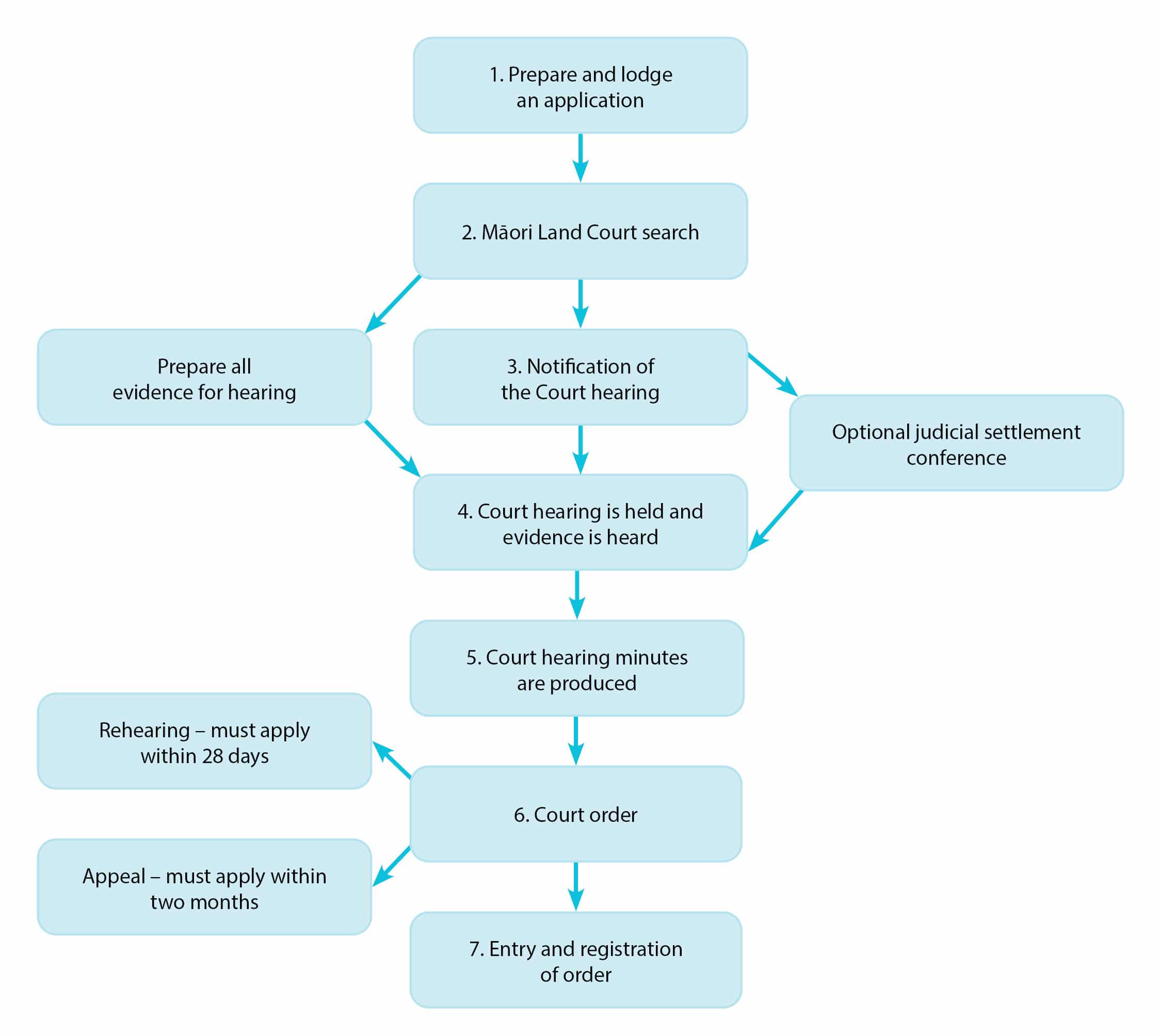The Māori Land Court
Summary of the Māori Land Court process
How will the Māori Land Court deal with my application?
Māori Land Court Rules 2011, Part 4 Te Ture Whenua Māori Act 1993, s 40A
This flowchart summarises the court process when an application has been lodged under Te Ture Whenua Māori Act:
The court process, step by step
Step 1. Lodging an application – You hand in your completed application form, along with supporting documents and the fee, to any Māori Land Court office. The court staff will check the application before they accept it. The court will send you a letter acknowledging that it has received your application.
Step 2. Māori Land Court search – You’ll be assigned a case manager from the court, who will search the court records if necessary and pass on your application to the court for it to give directions on how it will be dealt with. The case manager will then produce a draft submission for the hearing.
Step 3. Notification of the court hearing – You’ll get a letter at least two weeks before your hearing telling you when and where the hearing will be. If you can’t go to the hearing or if you want to change when or where it will be held, you should contact your case manager in writing. The Māori Land Court sits either once a month or once every three months. Details are in the Pānui.
Optional step: Judicial settlement conference – A new option for people to meet with a judge to negotiate a settlement before going to court. Conditions apply – including that it only happens if all parties agree to do it, or if there is only a question of law to decide.
Step 4. Court hearing – The hearing gives you and other interested parties a chance to give evidence to the court so that a decision can be made. The staff at the court will be available to assist you before, during and after your hearing. If the case is complex, it might be adjourned, or paused, while the court takes time to consider your case, and then started again later. For more information about the hearing, see: “The hearing”.
Step 5. Minutes of hearing – Each case is recorded and a transcript is produced. A copy of the minute will be sent to you (the applicant) and other interested parties.
Step 6. Court order – The court draws up a court order, and the order is signed and sealed. You’ll be sent a copy of the order two months after the hearing.
Step 7. Entry and registration of order – The order is entered in Pātaka Whenua. If necessary, the order will be sent to Land Information New Zealand (LINZ) for it to be registered.
For more details about Pātaka Whenua, see: “Key terms and definitions”.


